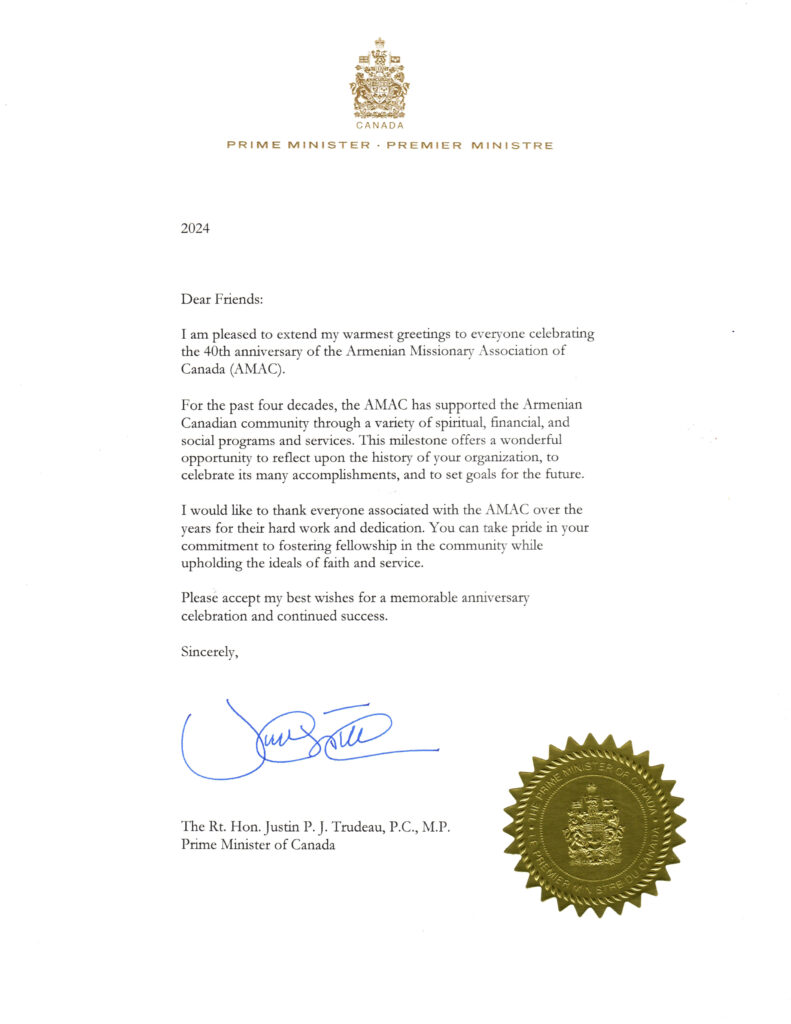2020 is a year most of us will remember as the year best left forgotten.
During this year, our Syria communities continued to suffer the consequences of the bloody Syrian war and its ensuing refugee crisis. This was followed by the Lebanese economic crisis which was further exacerbated by the explosion that rocked Beirut, causing extensive human suffering and property damage. All of these took place while the COVID pandemic was ravaging national and personal economies.
The West has not been spared. The COVID economic crisis has left many Canadians unemployed. Businesses are struggling to stay afloat. At a time when we need it most, we are barred from gatherings and church events that provide us with the much needed emotional and spiritual support that only family, close friends, relatives and church can provide.
All of these pale in comparison to the brutal and painful third Artsakh war as well as its consequences: grieving families, severe political unrest in Armenia, and an entire region uncertain about its future.
Armenians around the globe will soon observe Christmas and New Year. We consider these holidays as joyous events and observe them with family celebrations, family gatherings and gift exchanges.
Yet this year is different.
Many of our brothers and sisters in the Middle East are suffering because of a severe economic crisis. Many have lost jobs. The purchasing power of those who are still working has plummeted due to steep inflation. They can no longer afford basic necessities.
Our compatriots in Armenia and Artsakh are mourning the death of sons, husbands and brothers. Others have not heard from their loved ones who were defending the homeland. Have they been captured by the enemy? Are they lost in warzone forests? No news is more agonizing than the news of martyrdom. These people don’t even have the energy to worry about lost jobs and damaged homes.
Because of COVID-19, Canadians are not allowed holiday gatherings with extended family members and friends. Even church attendance is severely limited. This will be an eventless and not very merry Christmas season.
How do we respond? What can the original Christmas story teach us about this year’s unusually painful and trying Christmas?
The story of Jesus’ birth is about God’s empathic response to sin-affected human suffering. He was not aloof in the face of ongoing human pain. God acted. He left behind his heavenly glory, all of its feasts and festivities to save humanity and bring us hope. The Christmas story is one of sacrificial love and service.
The Bible confirms what humanity has known for millennia – human life is plagued with pain and suffering. Westerners enjoying unprecedented economic prosperity are not exempt either. We cannot eliminate human suffering. Yet, the Christmas story challenges us to imitate Christ and mitigate suffering by lovingly extending a helping hand to those whom life has dealt with harshly.
Acts of selfless kindness flowing out of a generous heart will certainly give meaning and a profound sense of fulfillment that no festivity can ever provide. Yet most important, such kindness will please Jesus whose birthday we want to celebrate.

Harout Nercessian
AMAC Board Member



